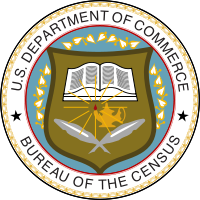 New data released by the U.S. Census Bureau offers a look at the current state of the gender gap in African American enrollments in higher education. In October 2014, there were 1,802,000 Black women enrolled in higher education in the United States, compared to 1,132,000 Black men. Thus, women made up 61.4 percent of all African American enrollments in higher education.
New data released by the U.S. Census Bureau offers a look at the current state of the gender gap in African American enrollments in higher education. In October 2014, there were 1,802,000 Black women enrolled in higher education in the United States, compared to 1,132,000 Black men. Thus, women made up 61.4 percent of all African American enrollments in higher education.
There were 887,000 Black women enrolled in four-year colleges and universities, compared to 618,000 Black men. At two-year colleges, there were 548,000 Black women and 285,000 Black men enrolled.
In graduate schools, 367,000 Black women were enrolled compared to 229,000 Black men. Thus, women were 61.6 percent of all Black enrollments in graduate schools.












